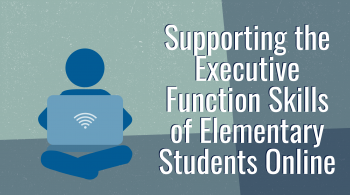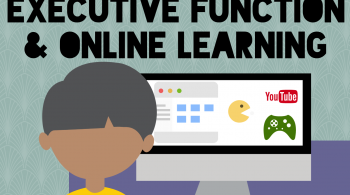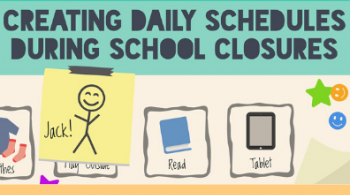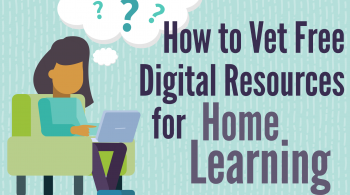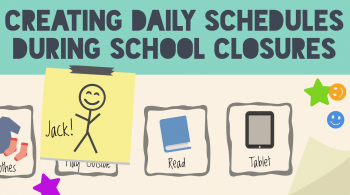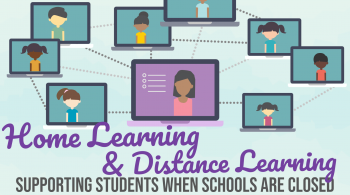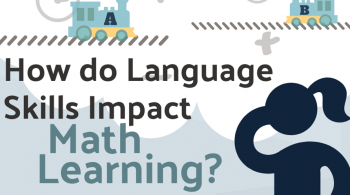By Lisa Carey, M.A.T.
March 21, 2017
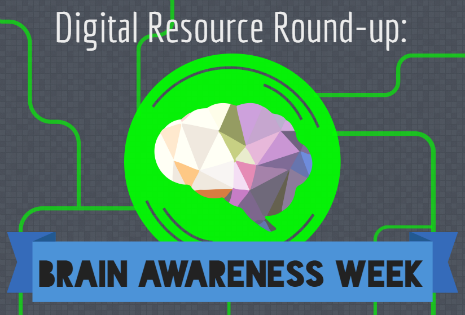
We’ve offered digital resources about the brain in the past, but in honor of Brain Awareness Week, we are going to connect you to even more free resources! Want help understanding the brain and learning? Looking for resources to help you teach your students about the amazing organ that allows us to think and act? Well, here you go!
Brain Awareness Week is scheduled for March 12-18th! Learning about the brain doesn’t have to be limited to one week out of the year, so we hope that these resources help you explore more about the brain and how awesome it is.
Brain Anatomy & Terminology
A lot of neuroscience materials reference particular parts of the brain. Therefore, it is helpful to understand these different areas as you explore cognitive neuroscience. However, there seems to be a big lack of fully accessible brain anatomy sites. While we try to find a great solution to this problem (stay tuned for future updates), we can offer the current options with explanations of potential barriers. 3D Brain from Coldspring Harbor Laboratories offers a brain that highlights different regions and can be rotated. However, it requires mouse navigation and consequently will pose barriers to individuals who navigate the computer using a keyboard, switch, or other device. For some people, the dark colors used in the 3D Brain may be too difficult to see. You can try the FINR Atlas of Brain Injury & Anatomy, which offers slightly higher contrast. While not as great as the other tools for a quick look at brain anatomy, this PDF from Mayfield Clinic offers a free resource that is compatible with screen readers.
As a teacher, you know that it is always good to unpack difficult vocabulary as you’re starting a new topic. Luckily, Annenberg Learner offers a free open-online course for teachers about neuroscience, AND it comes with a glossary! Even if you don’t have time to go through the whole course, you can still use the glossary to get up to speed on new terminology. The Dana Foundation also offers a great online glossary.
How does the Brain Work?
Enjoy fast-paced informational videos? The Crash Course YouTube station offers a great intro to neuroscience that will have you up to speed in under fifteen minutes. The video moves very quickly, but it includes correct subtitles (win for accessibility!), which as a hearing person, I used to help understand the content I missed because of the rapid-fire pace. Luckily, since it’s a free video, you can re-watch it as many times as you’d like.
Looking to learn more about neurodevelopment? Harvard’s Center on the Developing Child offers videos, free-access white papers, and practice guides for teachers and parents.
Resources for Classroom Activities
For student-friendly readings about the brain, check out Neuroscience for Kids. Washington University has a list of neuroscience activities and experiments that you can do with students into explore neuroscience. .
How does the brain work? Watch this TED Talk play list of experts explaining different aspects of the brain. From neuro-anatomy to why teen brains make them risk takers, this collection of videos is great viewing for any educator interested in cognitive neuroscience. You can also use TED Ed to create your own online video lesson using any of these great brain videos.
Want more resources for joining your students on an exploration of the brain? The Dana Foundation offers a specific section for educators that includes lessons and other resources.
Hopefully, these resources will allow you to dive into Brain Awareness Week with gusto. But, learning about the brain and using cognitive neuroscience to improve learning outcomes for students shouldn’t just happen in March. It is our belief that teachers should be connected with current research about the developing brain. After all, teachers shape brains on a daily basis.







